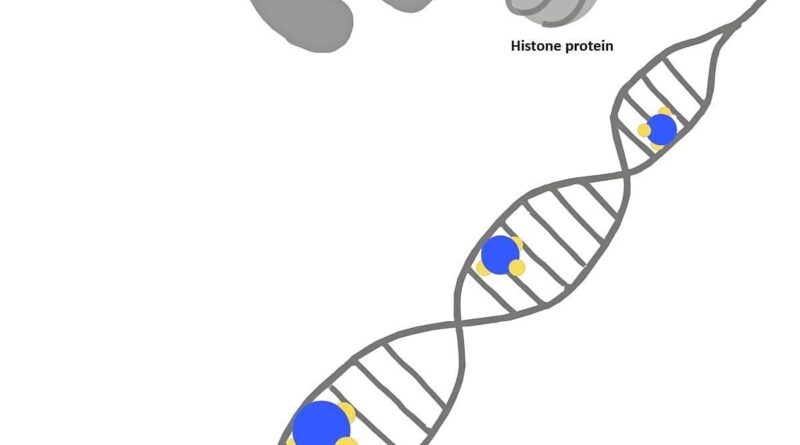Is your body aging like you?
In recent years, there has been a growing interest in understanding the aging process and its impact on health and longevity.
Scientists and researchers have found that chronological age – the number of years a person has lived – is not always an accurate reflection of their natural age, which reflects the true state of health and their strength.
Around the world, nations are faced with the challenge of providing affordable health services to a population with an increase in non-communicable and chronic diseases.
Surprisingly, while life expectancy has increased in many countries, the prevalence of chronic diseases has also increased.
This means that despite living longer, not all of that time is spent in good health.
In other words, the extra years of life are not necessarily used in terms of health and well-being.
This is often referred to as the “longevity conflict”, where people may live longer, but the quality of their later years may be reduced by the onset of chronic diseases and age-related health problems.
To change orders
One of the keys to solving this problem is to accurately measure biological age, as it provides important information about a person’s health and aging in general.
Scientists have discovered that changes in the epigenome play an important role in aging.
The epigenome is a set of chemical modifications to DNA (deoxyribonucleic acid) and histone proteins that influence gene expression without changing the basic DNA sequence.
Think of your DNA as a giant instruction book that guides your body’s growth, development and function.
The epigenome is like a list of sticky notes placed all over the book, guiding your body which parts to read and which to skip.
These sticky notes don’t change the actual expression of your DNA; the instructions are always the same.
However, sticky notes can change how those commands are used.
Factors such as your diet, exercise habits, stress levels, and even the air you breathe can add or remove these sticky notes.
In fact, the epigenome controls the way your body uses DNA instructions without changing the DNA itself.
As we grow older, the elements attached to our DNA can change.
Some genes that should work may be turned off and others that should not be turned on.
This misregulation can cause cells to malfunction, which contributes to aging.
For example, genes responsible for cell repair may be turned off, while genes that promote inflammation may be turned on, leading to cell damage and aging.
Influence orders
The good news is that our methods can affect these sticking points.
Good habits can increase helpful adhesions that promote health, while bad habits can increase harmful adhesions that accelerate aging and cause health problems.
Studies show that good habits can significantly improve your natural age.
By combining the following methods, you can positively influence your natural age:
- Foods that contain “epi-nutrients”, for example, folate, betaine, vitamin C, vitamin A, epigallocatechin gallate (EGCG) in green tea, curcumin, etc.
- Restriction of simple carbohydrates, that is, carbohydrates that can be broken down quickly by the body, such as sugar
- Intermittent fasting within a 12-hour window each day
- Drink eight glasses of water a day
- Get enough sleep, ie at least seven hours every night
- Exercise regularly
- Daily relaxation exercises, for example, two 10-minute breathing periods.
Instead, unhealthy lifestyle habits such as smoking, excessive alcohol consumption and exercise, as well as chronic stress, can negatively affect the epigenome and accelerate biological aging.
By measuring these epigenetic changes, we are able to estimate a person’s natural age.
This, in turn, enables us to predict their overall health, longevity, susceptibility to age-related diseases and death.
This information can be used to create health and wellness plans, to allow people to take immediate steps to improve their health, and to evaluate the effectiveness of certain interventions or lifestyle changes in slowing aging.
Better understanding
Recent advances in medical science have led to the development of new technologies that can measure biological age with greater accuracy.
By incorporating biological age assessment technology into health care systems, countries like Malaysia can change their approach to aging and health.
Benefits include helping people better understand their health and the risks associated with aging.
This knowledge can empower individuals to make healthy lifestyle choices, such as adopting healthy habits, managing stress and seeking early intervention for aging-related diseases.
Biological aging technology can also help health care professionals identify people who may be at high risk of age-related diseases, allowing for targeted prevention and intervention measures. get involved.
Finally, the integration of such technology into the Malaysian healthcare system can contribute to the advancement of research and development by providing researchers with valuable information on the aging process and how it affects different populations. .
Researchers can gain insights into aging processes and identify possible interventions to improve health and increase longevity.
By using biological age monitoring technology, Malaysia can also join the global effort to promote longevity and healthy ageing.
Dr Shirley Koeh is a general practitioner with an interest in functional medicine. For more information, email starhealth@thestar.com.my. The information provided is for educational and communication purposes only, and should not be considered medical advice. Star does not make any guarantees as to the accuracy, completeness, functionality, usefulness or other guarantees regarding the content in this article. Star disclaims all responsibility for any loss, property damage or personal injury suffered directly or indirectly as a result of reliance on such information.
#body #aging
